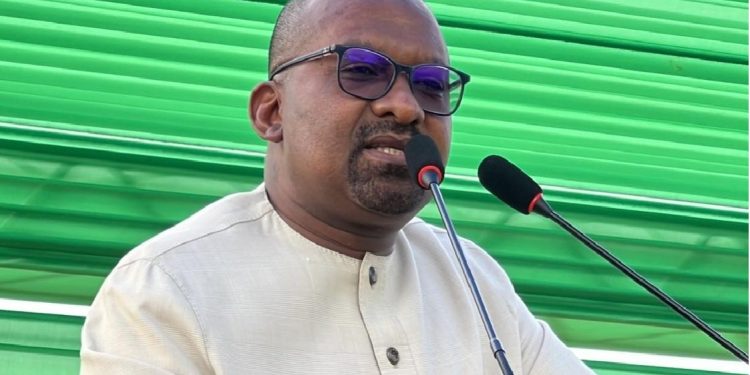By Hassan Osman Kargbo
Vice President Dr. Mohamed Juldeh Jalloh has officially welcomed the Mercy Ship on its eighth mission to Sierra Leone, marking another chapter of hope, healing, and partnership in the country’s healthcare journey.
Since its first arrival in 1992, Mercy Ships has played a vital role in strengthening healthcare delivery in Sierra Leone. The charity’s floating hospital has provided thousands of life-saving surgeries, free medical care, and capacity-building initiatives aimed at improving the skills of local health workers.
During previous missions, the Mercy Ship team performed more than 3,600 surgeries, ranging from cleft lip and palate reconstructions to orthopedic, maxillofacial, and cataract operations. These interventions not only saved lives but also restored dignity and gave families a second chance at a healthier future.
Speaking at the welcome ceremony, Vice President Jalloh described the mission as a clear demonstration of Sierra Leone’s growing partnership with global humanitarian organizations. He emphasized that the government is committed to ensuring that such collaborations contribute meaningfully to national development goals.
“The arrival of the Mercy Ship is a testament to our shared vision of improving healthcare in Sierra Leone,” the Vice President said. “This mission brings renewed hope to thousands of citizens and strengthens our determination to build a healthier nation.”
He highlighted that the work of Mercy Ships aligns closely with the United Nations Sustainable Development Goals (SDGs), particularly SDG 3: Good Health and Well-Being. According to him, the government has been working to expand access to essential medicines, improve diagnostic services, upgrade health infrastructure, and develop the country’s health workforce. The contribution of Mercy Ships, he noted, directly supports these priorities.
Beyond surgeries, the organization also focuses on training and mentoring local healthcare professionals, ensuring that the knowledge and skills remain in Sierra Leone long after the ship departs. This model of impact not only addresses immediate needs but also builds sustainable systems for the future.
Vice President Jalloh reaffirmed the government’s commitment to integrating humanitarian support into long-term healthcare strategies. He praised Mercy Ships for being a dependable partner and urged Sierra Leoneans to see the mission as an opportunity for collective learning and transformation.
Community members and patients who have benefited from the services in past years also shared testimonies of restored health and renewed hope. For many, conditions that once seemed untreatable were resolved free of cost, lifting heavy burdens from families who could not afford advanced medical care.
Observers note that the arrival of Mercy Ships comes at a critical time when Sierra Leone continues to recover from years of under-resourced health systems and the devastating impacts of past crises such as Ebola and COVID-19. The renewed mission signals progress, optimism, and a stronger healthcare trajectory for the nation.
As Sierra Leone continues its path towards healthcare transformation, the partnership between government and global humanitarian initiatives like Mercy Ships stands as proof of what is possible when collective efforts are directed towards saving lives. The eighth mission promises not only to heal but also to inspire—a reminder that Sierra Leone’s healthcare transformation is no longer just a dream, but a reality in motion.













